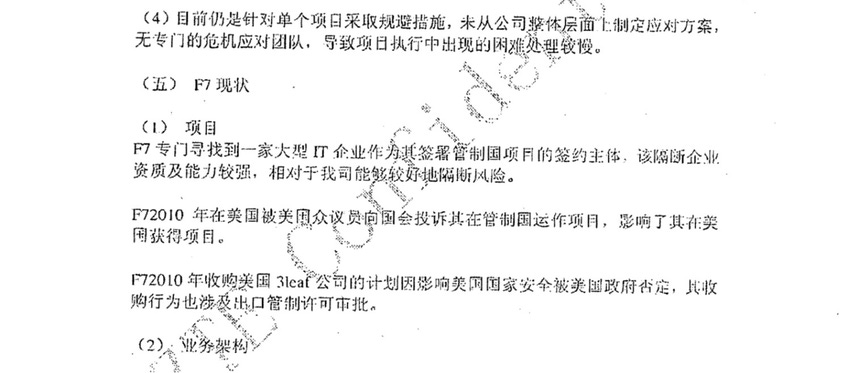The arrest of Huawei’s CFO was the culmination of years of investigation by the American government and judiciary, with an apparent helping hand from ZTE.
December 7, 2018

The arrest of Huawei’s CFO was the culmination of years of investigation by the American government and judiciary, with an apparent helping hand from ZTE.
When Ms. Meng Wanzhou, Huawei’s CFO, was arrested in Vancouver, facing extradition to the US, we remembered a file seized and published by the US Department of Commerce when it was investigating then punishing Huawei’s domestic competitor ZTE early in the year, which detailed some of the ways ZTE had gone about the activities that got it into trouble.
The internal document (in Chinese) from ZTE, dated 25 August 2011 includes detailed proposals on how to circumvent American embargos against Iran, Sudan, North Korea, Syria, Cuba, as well as partial sanctions against Ethiopia and Myanmar. It was approved by ZTE’s C-level executives by the beginning of September. The document was used as an incriminating evidence against ZTE, which, in addition to the fines, also resulted in the wholesale change of management in ZTE.
Part II, Section 5 of the document refers to a company codenamed F7 which was also active in similar business dealings with risky countries. F7 used an IT company with good credibility as the front party to sign contracts with their customers in countries facing US sanctions. ZTE also gathered competitive intelligence on the compliance officers and lawyers hired by F7 in head offices as well as in branches offices to handle export embargo circumvention, including the salary offers. The document then proposed ZTE should use this as a blueprint.
The identity of F7 is not hard to establish. IHuawei was the only other large-scale telecom equipment exporter from China, F7 had been barred by Congress from winning meaningful deals in the US, it had hired a Chinese-American lawyer from TI, and it had a joint-venture with Symantec. If this evidence is still too circumstantial, the document also listed specifically that F7 had run into difficulty in its attempted acquisition of 3Leaf, an American server technology company, in 2010. It was widely covered at the time by media outlets including the Reuters that Huawei decided to pull out of the proposed acquisition of and to divest its assets in 3Leaf.
This ZTE document must have been just one piece on the jigsaw of evidence against Huawei put together by the American law-enforcement, but it no doubt would be an important piece. It suggests that Huawei has been flouting US rules for quite some time, and Ms. Meng, as the CFO (as well as the daughter of the founder of Huawei) may have been presumaed to have had some role to play in the whole ploy.
According to sources inside ZTE, “F7” is ZTE’s internal tongue-in-cheek reference to Huawei. Phonetically F7 reads a slight corruption of the word for “husband and wife” in Chinese. It derives from the urban legend that many Huawei employees, having little time to date outside, would end up marrying their colleagues, so the company was full of couples.
About the Author(s)
You May Also Like








.png?width=300&auto=webp&quality=80&disable=upscale)


_1.jpg?width=300&auto=webp&quality=80&disable=upscale)


.png?width=800&auto=webp&quality=80&disable=upscale)